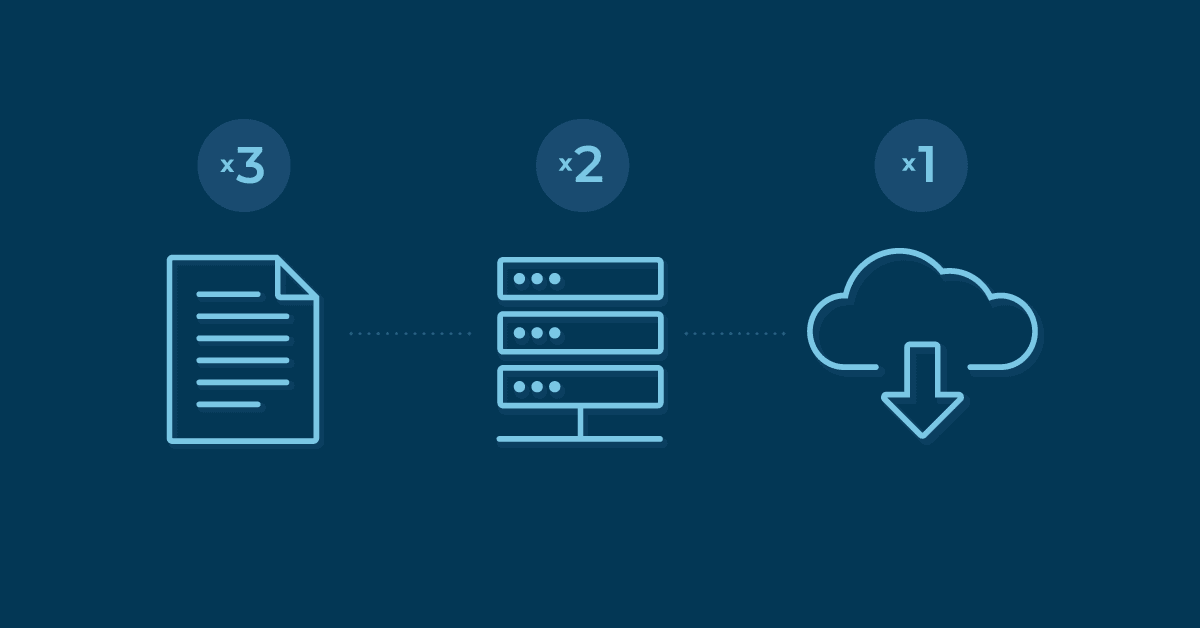Automated Backup As A Service For Large Enterprises
Essential Remote Backup Appliance Performance Evaluation
Data and information are essential for today's businesses to run effectively. To safeguard valuable data from unforeseen disasters or system failures, having a dependable backup solution is therefore essential. We will contrast various backup appliances on the market, along with their features and capabilities, in this article. So let's explore backup appliance technology in depth.
- Backup Appliances Introduction:
A backup appliance is a specific tool that provides businesses with an all-inclusive backup solution. To streamline the backup procedure and guarantee data security, it combines hardware and software elements.
- The advantages of Backup Appliances:
Faster backups, easier management, scalability, and dependable disaster recovery options are just a few of the benefits of backup appliances. They are the perfect option for businesses of all sizes because of these advantages.
Convenient Mail Server Trends
- Important Characteristics to take into account:
Deduplication, encryption, compression, scalability, and integration with existing infrastructure should all be considered when comparing backup appliances. You can select the ideal appliance for your company by weighing these features.
- assessing the capacity of storage:
Backup appliances depend heavily on their storage capacity. When determining storage requirements, take current data size, growth rate, and retention policies into account. Make sure the appliance can meet the long-term data storage requirements of your company.
- Backup methods that are supported:
Different backup appliances support a variety of backup techniques, including differential, incremental, and full backups. When choosing an appliance, it's critical to comprehend these techniques and how they affect storage usage and recovery times.
Safe Offsite Secure Backup Efficiency Breakdown
- Integration into the current infrastructure
It's essential to integrate seamlessly with your current It environment. To ensure compatibility, look for backup equipment that supports widely used databases, operating systems, virtualization platforms, and cloud services.
- Recovery Point and Time Objectives (rto ):
The maximum amount of data that can be lost during a disaster and the maximum acceptable downtime are specified by Rto and Rpo. Choose a backup appliance that complies with your organization's requirements after evaluating your needs.
- Software for backup compatibility:
While some backup appliances offer integration with third-party backup solutions, others are packaged with their own backup software. To ensure efficient operations, check the appliance's compatibility with your preferred backup software.
Rapid Email Server Guide
- Options for scalability:
Your data volume increases along with the size of your organization. To meet changing needs, select a backup appliance with scalability features like increasing performance or adding more storage space.
- Security precautions
In today's digital environment, data security is essential. To protect your data from unauthorized access, look for backup appliances with encryption, secure access controls, and built-in malware protection.

- Capabilities for Monitoring and reporting:
Tracking backup status, spotting problems, and ensuring successful backups require effective monitoring and reporting. To simplify management tasks, assess the monitoring and reporting capabilities of various appliances.
High-performance Best Online Backup Services 2024 Quick Guide
- Support and maintenance for technical issues:
Take into account the backup appliance provider's technical support and maintenance services. You can overcome obstacles and keep your backup infrastructure current by receiving prompt assistance and regular updates.

- Analysis of costs
Analyze the backup appliance's total cost of ownership (tco ), which includes any potential scalability costs as well as initial costs, licensing fees, ongoing maintenance, and maintenance costs. To make an informed choice, weigh the advantages and disadvantages.
Important Notes:
- Businesses can get a complete backup solution from backup appliances.
- When assessing backup appliances, take into account features like deduplication, encryption, and scalability.
Before choosing an appliance, be aware of the Rto pop over to this site and Rpo requirements for your company.
- Make sure the backup software you prefer and the infrastructure you already have are compatible.
- check here Search for trustworthy technical support, monitoring capabilities, and security measures.
To make a wise choice, examine the backup appliance's Tco.
Safe Pros And Cons Of Online Backup Case Studies
Having a dependable backup appliance is essential for businesses due see post to the rising significance of data protection. You can choose the backup appliance that will best meet your organization's needs by weighing its features, scalability options, security precautions, and compatibility. Therefore, choose wisely and protect your priceless information.